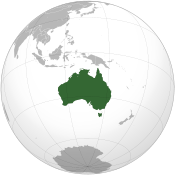Stolen Generations used as medical guinea pigs, Australian inquiry told
Wednesday, April 16, 2008
During the opening day of a Senate inquiry into compensation for Australia's "Stolen Generations", Aboriginal elder Kathleen Mills has claimed that children held in Darwin's Kahlin Compound in the 1920s and '30s were injected with an experimental serum. The serum, a treatment for leprosy, had severe adverse effects. According to Mills, "it made our people very, very ill ... the treatment almost killed them".
Mills' claim, aimed at highlighting the difficulty experienced by Aboriginal people in accessing records, has had the effect of "throwing the cat among the pigeons", and Mills has asked for the Government's assistance in "opening Pandora's box" with regards to records she says will be found in departmental archives. The Minister for Health, Nicola Roxon, has called on her staff to search for any relevant documents. "These are obviously very serious allegations," Roxon said.
The term "Stolen Generations" refers to a government practice in the 20th century where Aboriginal and half-caste children were removed from their families and raised in institutions such as the Kahlin Compound, or in foster families. Awareness of the practice was raised in the 1997 report Bringing Them Home, which recommended the Government offer recompense to victims of the act and issue a formal apology. The Prime Minister at the time, John Howard, issued a statement of regret but refused to offer an apology. In February 2008, Prime Minister Kevin Rudd issued the apology, which was accepted unanimously by Parliament, and the Stolen Generations Fund and Senate inquiry were established to process claims for compensation.
Related news
edit- "Australian Parliament apologises to the Stolen Generations" — Wikinews, February 13, 2008
- "Australian parliament to apologise to Stolen Generations" — Wikinews, February 12, 2008
Sources
edit- AAP and Mark Metherell. "Children were guinea pigs, inquiry told" — Sydney Morning Herald, April 16, 2008
- Tara Ravens. "Indigenous kids 'injected with leprosy treatments'" — News Limited, April 16, 2008

